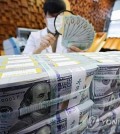- California Assembly OKs highest minimum wage in nation
- S. Korea unveils first graphic cigarette warnings
- US joins with South Korea, Japan in bid to deter North Korea
- LPGA golfer Chun In-gee finally back in action
- S. Korea won’t be top seed in final World Cup qualification round
- US men’s soccer misses 2nd straight Olympics
- US back on track in qualifying with 4-0 win over Guatemala
- High-intensity workout injuries spawn cottage industry
- CDC expands range of Zika mosquitoes into parts of Northeast
- Who knew? ‘The Walking Dead’ is helping families connect
China announces list of restrictions on mineral trade with N. Korea
BEIJING, (Yonhap) — China’s commerce ministry on Tuesday announced a list of restrictions on imports from North Korea and said it will ban the export of jet fuel in accordance with new U.N. sanctions slapped on Pyongyang following its latest provocations.
Backed by China, the U.N. Security Council adopted a package of fresh sanctions on North Korea earlier last month to punish the North for conducting its fourth nuclear test in January and launching a long-range rocket in February.
The new sanctions require U.N. member states to ban imports of North Korean gold and rare earth metals. But trade in North Korean coal and iron ore will be allowed if the proceeds from the trade are related to “livelihood purposes.”
The Chinese announcement said it will continue to import North Korean coal, iron, and iron ore if such transactions are involved in “livelihood purposes” and their revenues are not used for North Korea’s nuclear and missile programs.
“If credible information confirms that any deal is not for livelihood purposes or in connection with North Korea’s nuclear or ballistic missile programs,” the Chinese customs authorities should not release such mineral items, a statement released by the Chinese ministry said.
China accounts for nearly 90 percent of North Korea’s foreign trade, and mineral resources are a key part of their bilateral trade.
Many analysts say the reference to “livelihood purposes” in the new U.N. sanctions could allow China to continue the trade of coal and iron ore with North Korea.
The Chinese list of restrictions on mineral imports from North Korea also includes titanium and vanadium.
In line with new U.N. sanctions, China also prevents their nationals from selling or supplying jet fuel to North Korea.
But the provision will not apply if there is a humanitarian need, or for civilian passenger aircraft outside North Korea during a return flight to North Korea, the Chinese statement said.
Earlier in the day, South Korean Ambassador to China Kim Jang-soo told a group of South Korean correspondents that the new U.N. sanctions have so far left no specific impact on bilateral trade between North Korea and China.
“No specific figures, including changes in North Korea-China trade volume and (China’s) import volume of (North Korean) coal, have been reported yet,” Kim said.
Kim said China will submit a report about its implementation of the new sanctions on North Korea within 90 days of the sanctions being adopted.
The Chinese report to the U.N. will become the “standard” in assessing whether or not China is sincerely enforcing the new sanctions on North Korea, Kim said.















